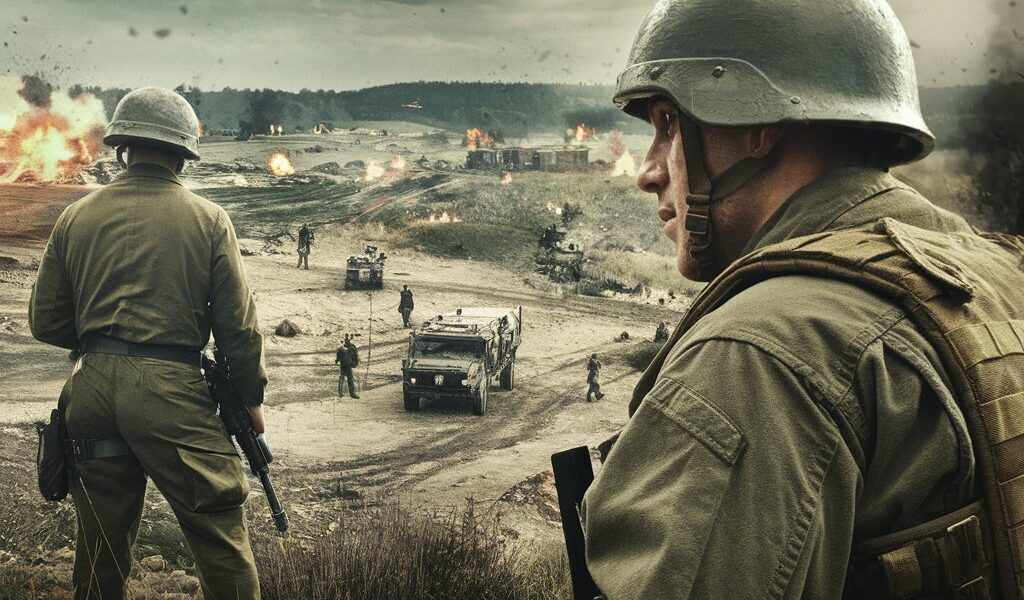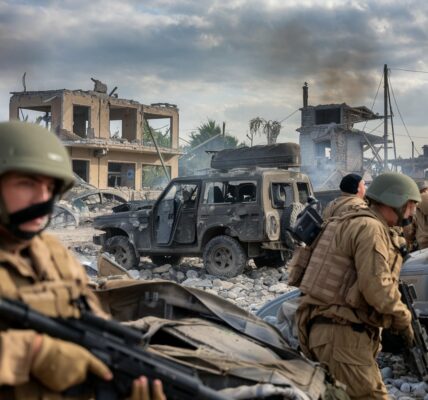Putin Draws a New Red Line: The West Faces a Crucial Decision on Ukraine’s Use of Long-Range Missiles
In a recent speech in St. Petersburg, Russian President Vladimir Putin issued a stark warning to the West, signaling a potential turning point in the war in Ukraine. The central message: if Ukraine uses Western-supplied long-range missiles to target Russian territory, Moscow will consider it direct participation in the war by NATO countries. This latest declaration underscores Russia’s determination to defend its borders and raises the stakes for both Ukraine and its Western allies.
A New Red Line
Speaking in his home city of St. Petersburg, Putin was unequivocal. Allowing Ukraine to strike Russian territory with long-range missiles provided by the West, he said, would change “the nature of the conflict” and push it to a new, more dangerous level. The Russian president warned that this would amount to NATO involvement in the war, a significant shift from the indirect support that Ukraine has received from the West so far. The Kremlin leader’s message was clear: the West must not cross this line.
For Putin, the provision of such advanced weaponry is not merely a military concern but a direct threat to Russia’s sovereignty. He claimed that Ukraine would require intelligence from Western satellites and the expertise of NATO servicemen to successfully carry out strikes deep into Russian territory. These assertions, while lacking concrete evidence, align with the narrative Russia has pushed since the start of its invasion: that NATO, and not just Ukraine, is the real adversary.
A History of Crossed Lines
This is not the first time Putin has drawn red lines in this conflict. When Russia launched its full-scale invasion of Ukraine on February 24, 2022, the Russian president warned the West against interference. At the time, he implied that any direct involvement would lead to consequences “such as you have never seen in your entire history”—widely interpreted as a veiled threat of nuclear escalation.
Since then, the West has provided Ukraine with a wide array of military assistance, including tanks, missile systems, and, most recently, F-16 fighter jets. Yet, despite earlier threats, Russia has not reacted with the catastrophic measures Putin initially implied. This raises questions about whether Putin’s latest red line on long-range missiles will hold or if it is, like previous lines, a rhetorical device aimed at deterring further Western support for Ukraine.
The West’s Dilemma
For Western leaders, Putin’s warning presents a familiar but high-stakes dilemma: whether to heed the Kremlin’s threats and limit Ukraine’s military capabilities or to continue bolstering Ukraine’s defense in the face of ongoing Russian aggression. Ukrainian forces have already been accused of using U.S.-supplied ATACMS (Army Tactical Missile Systems) to target Crimea, a peninsula annexed by Russia in 2014 but still internationally recognized as Ukrainian territory.
For Putin, however, any Ukrainian attack on Russia’s internationally recognized borders would be far more provocative. His latest remarks reflect the Kremlin’s sensitivity to any strikes that cross from contested regions like Crimea into Russian heartland territories. The message is that such an escalation would not be tolerated and would provoke a severe Russian response.
The real challenge for the West lies in balancing the desire to avoid a direct confrontation with Russia against the need to support Ukraine’s right to defend itself. Recent discussions between U.S. President Joe Biden and British opposition leader Sir Keir Starmer in Washington have included Ukraine and the question of whether restrictions on the use of Western missiles should be lifted.
Starmer was unequivocal in his support for Ukraine, stating, “Russia started this conflict. Russia illegally invaded Ukraine. Russia can end this conflict straight away.” This sentiment is widely shared among Western leaders, but it does little to resolve the strategic dilemma posed by Putin’s latest red line.
The Kremlin’s Response: Threats of Escalation
While Putin did not specify how Moscow would respond to Western missiles being used against Russian territory, his rhetoric left little doubt that the consequences would be severe. “We will take corresponding decisions based on the threats to us that will be created,” he said, leaving the door open to a range of retaliatory measures. In June, Putin offered some clues when asked how Russia might react to Western missile strikes on its territory. He spoke of enhancing Russia’s air defense systems and destroying incoming missiles but also hinted at a more global response: Russia could arm adversaries of the West with similar long-range weapons.
This suggests that Moscow is not merely contemplating military retaliation within the context of Ukraine but is considering expanding the conflict to other regions. Russia has historically maintained close relationships with anti-Western regimes, including in the Middle East and Africa, and the possibility of Moscow supplying advanced weapons to these regions cannot be ruled out.
In recent months, Russia has also signaled a potential revision of its nuclear doctrine, with Deputy Foreign Minister Sergei Ryabkov stating that changes might be made due to the West’s “escalation course.” While the specific nature of these revisions remains unclear, any adjustment to Russia’s nuclear policy will likely increase concerns in Western capitals about the risks of miscalculation and unintended escalation.
A Broader Diplomatic Strain
Tensions between Russia and the West are not confined to the battlefield. On Friday, Russia withdrew the accreditation of six British diplomats, accusing them of “subversive activities” and threatening the country’s security. This move, while not unprecedented, is part of a broader diplomatic strain that reflects the depth of the geopolitical rift between Russia and Western nations.
For now, the West must carefully weigh its response to Putin’s latest warning. Long-range missiles could provide Ukraine with a crucial advantage in defending its territory and pushing back Russian forces. But they also carry the risk of dragging NATO directly into the conflict, with potentially devastating consequences for global security.
As the war drags on and the stakes grow ever higher, the question remains: will the West cross Putin’s new red line, and if so, how will Russia respond? The world watches, waiting for an answer that could reshape the trajectory of this already volatile conflict.





